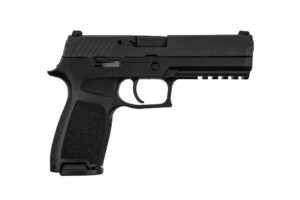Shooting At Vehicle
Virginia has criminalized a number of acts involving firearms. Some of these crimes involve shooting, carrying, possessing, and handling firearms. One of these crimes is Shooting at a Vehicle in Virginia (Va. Code §18.2-154).
Shooting at a Vehicle in Virginia


Shooting at a Vehicle in Virginia is a Felony, Regardless of Whether Someone was Injured
Maliciously or Unlawfully Shooting at Vehicles in Virginia is a felony and the penalty varies based on whether the offender shot at or from a vehicle, his or her intent, and whether someone died as a result.
The Commonwealth can prove this offense by showing that an offender:
- maliciously or unlawfully
- committed one of two acts:
- shot at, or
- maliciously threw a missile at or against
- one of the following vehicles:
- a train or car on any railroad or other transportation company or any vessel or other watercraft, or
- any motor vehicle or other vehicles when occupied by one or more persons
- whereby the life of any person on such train, car, vessel, or other watercraft, or in such motor vehicle or other vehicle, may be put in peril
Penalty for Shooting at Vehicle in Virginia
Shooting at a Vehicle in Virginia is always a felony. The penalties are based on the offender’s intent, whether a death resulted, and the vehicle targeted.
Malicious Shooting at Vehicle in Virginia
Maliciously shooting at a vehicle or throwing missiles at a vehicle in Virginia (Va. Code §18.2-154) is a Class 4 felony. This offense is punished with up to 10 years in prison and a fine up to $100,000.
If someone died as a result of the malicious shooting or throwing, the offender can be charged with Second Degree Murder. If the killing was willful, deliberate, and premeditated, the offender can be charged with First Degree Murder.
For more information on Maliciously Shooting at a Vehicle in Virginia under Va. Code §18.2-154, click here.
Unlawful Shooting at Vehicle in Virginia
If the shooting was unlawful as opposed to malicious, it will be charged as a Class 6 felony, which is punished with up to 5 years in prison and a fine up to $2,500. If someone died as a result of the unlawful shooting, the offender can be convicted of Involuntary Manslaughter.
For more information on Involuntary Manslaughter in Virginia, click here.
For more information on Unlawfully Shooting at a Vehicle in Virginia under Va. Code §18.2-154, click here.
What is the Difference Between Maliciously and Unlawfully Shooting at a Vehicle in Virginia?


Malicious and Unlawful Shooting in Virginia are Punished Differently
Malice generally refers to a mental state that shows an utter and callous indifference to the value of human life. Unlawful refers to a mental state that is less culpable, showing a disregard for the value of human life.
For more information on the difference between maliciously and unlawfully shooting at a vehicle in Virginia, click here.
For information on the difference between a malicious and unlawful act in Virginia, click here.
Shooting at Emergency Vehicles in Virginia
If a person maliciously or unlawfully shot at a marked law-enforcement, fire, or emergency medical services vehicle, he or she will be sentenced to a mandatory minimum of one year in prison and that sentence cannot be served concurrently with any other sentence.
For more information on shooting at emergency vehicles in Virginia, click here.
***DISCLAIMER: THE MATERIAL AND INFORMATION CONTAINED IN THIS POST, ON ANY PAGES ON THIS WEBSITE, AND ON ANY PAGES LINKED FROM THESE PAGES, ARE FOR GENERAL INFORMATION ONLY AND NOT LEGAL ADVICE. YOU SHOULD CONSULT A LICENSED ATTORNEY IN YOUR JURISDICTION BEFORE RELYING ON ANY OF THE INFORMATION CONTAINED ON THESE PAGES. SENDING EMAIL TO OR VIEWING INFORMATION FROM THIS WEBSITE DOES NOT CREATE AN ATTORNEY-CLIENT RELATIONSHIP***





